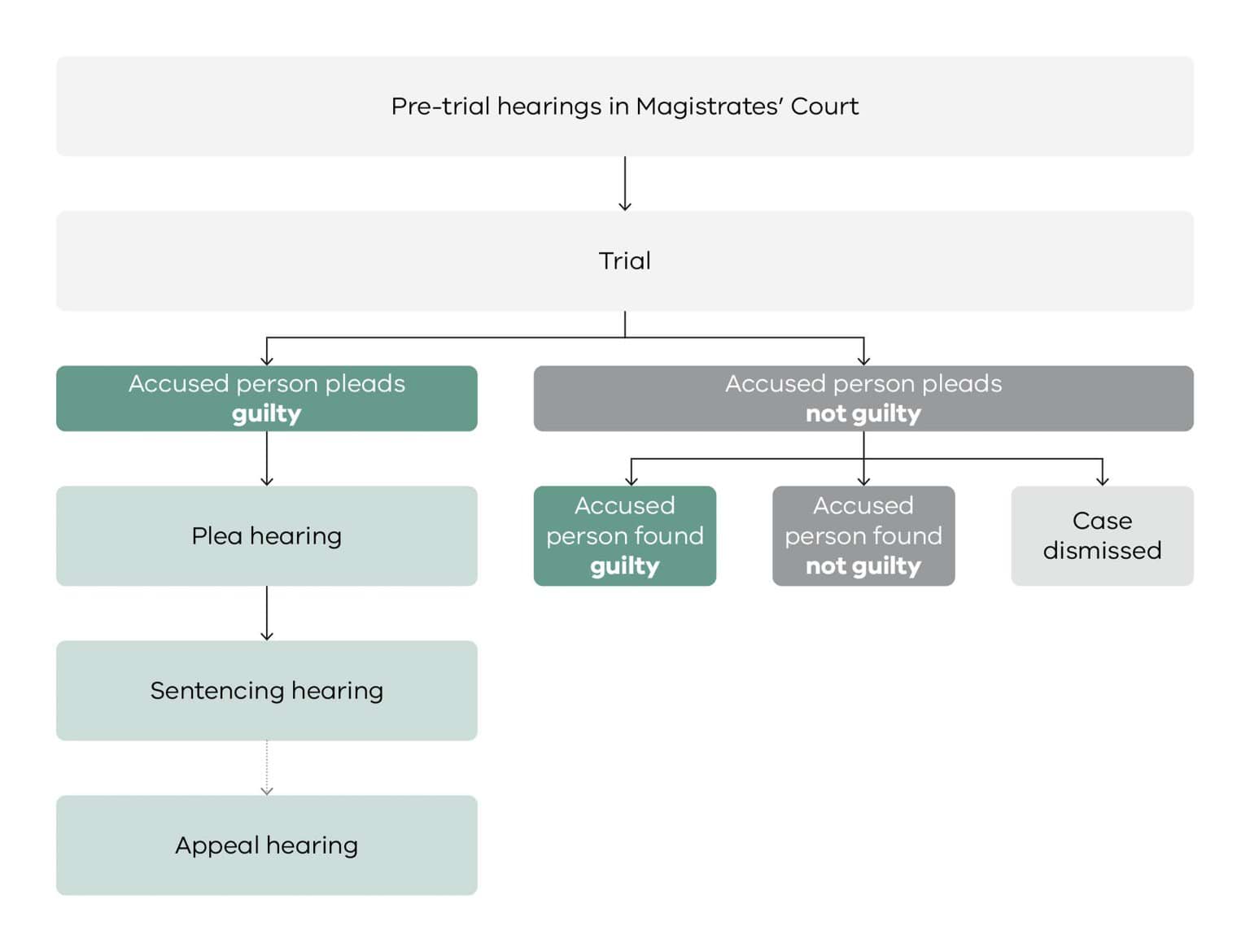Cases for more serious crimes usually start in the Magistrates’ Court and then go to the County or Supreme Court.
If you are needed as a witness, you will get a subpoena letter.
If the accused person is found guilty, you can make a Victim Impact Statement to tell the judge how the crime has affected you.
County and Supreme Courts are higher courts. They handle cases for more serious crimes (also called indictable offences), but usually:
- the first or pre-trial stage of a case happens in Magistrates’ Court or the Children’s Court
- if there is enough evidence for a trial, the magistrate sends the case to the County Court or the Supreme Court.
You can learn more about these courts by visiting the:
The court process can take quite a long time
Keep in mind:
- The court process can involve a number of hearings (or stages) on different days and these may be postponed (or adjourned), sometimes on the day.
- It can be several months or more between hearings. Stay in touch with the police officer in charge of your case (sometimes called the police informant) or the Office of Public Prosecutions (OPP).
- The Victims of Crime Helpline (1800 819 817) can give you information, advice and support during the legal process.
- If you are a witness at the trial, you can contact the Victims and Witness Assistance Service for support and information.
Court process in the County or Supreme Court for indictable offences
The trial
During the trial:
- the prosecution and defence legal teams will present evidence about what happened
- a judge will hear the case
- the jury (a group of people from the community) will decide whether the accused person is guilty or not.
If you are needed as a witness in the case, you will:
- get a subpoena letter telling you where and when the case will be
- give evidence at the trial.
You can find out more about:
At the end of the trial:
- If the accused person is found not guilty, the case will be finished.
- If the accused person pleads guilty or is found guilty, the judge will decide on the penalty (sentence). This will usually not happen on the same day.
Plea hearing
If the accused person pleads guilty or is found guilty, there will be a plea hearing.
At this hearing, the guilty person's lawyer can ask the judge to take certain things into account when deciding the sentence.
The judge will ask the prosecution whether the defendant has been found guilty of any offences in the past, as this may impact on the penalty the judge will impose at the sentencing hearing.
Any person who has been affected by the crime can submit a Victim Impact Statement.
This is your chance to tell the court how the crime has affected you. The judge will consider what you have said as one of many things they consider when they are deciding the sentence.
Sentencing hearing
The sentencing may happen on the same day as the plea hearing, but it can occur at a later date. At this hearing the judge tells the offender what their punishment will be.
You can learn more about penalties and sentences.
Appeal
The accused person may lodge an appeal to the Court of Appeal against being found guilty or against the penalty. The Office of Public Prosecutions (OPP) can also appeal against the penalty if they think that the penalty was not enough for the crime or not legally correct.
Updated

